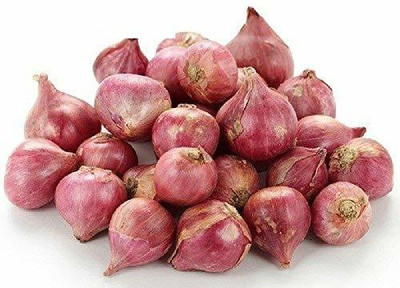CYBEXIS Small Onion Vegetable Seeds2000 Seeds Seed(2000 per packet)
Quick Overview
Product Price Comparison
PLANTING INSTRUCTIONSBefore planting onion seeds, add a 2 inches thick layer of compost into the soil, then mix organic fertilizer like Cotton Seed Meal, Seaweed, Cow Manure, etc. with the soil. It is advisable to start onions indoors if you are planting directly from seeds.Sow the seeds 1 inch deep in the soil. Maintain a distance of about half an inch or more between each seed. If you are planting rows directly in the garden, keep a space of at least 1 and a half to 2 feet between the rows. Onion seeds usually take only 7-10 days to germinate.Once the seedlings have enough leaf growth, thin the plants to 3-4 inches apart. If you started your onion plants indoors, then 4-6 weeks from planting, take them outdoors for transplanting.GROWING REQUIREMENTSPESTS & DISEASESPests: Bulb Mites, Leaf Miners, Onion Maggots, Thrips. Diseases: Black Mold, Botrytis Leaf Blight, Downy Mildew, Fusarium Basal Plate Rot, Fusarium Damping-off, Pink Root, Purple Blotch, Rust, Smut, White Rot, Leaf Streak, Bulb Rot, Onion Yellow Dwarf, Pythium Seed Rot. Watering the plants in the morning helps to avoid fungal diseases. Companion plants significantly reduce incoming pests on your crops. Watering down the plants with a strong stream of water followed by an application of diluted neem or castor oil on the pest-affected parts of the plant will help to get rid of them.SOILSandy loam to heavy clay with a pH level of 5.5 to 6.5.SPOTFull sun; onions cannot grow in partial or full shade.TEMPERATUREThe ideal germination temperature needed by onions is between 20┬░C to 25┬░C.WATERINGIf you add mulch to the soil, your onion plants will not require too much water. Onion plants can thrive on as little as 1 inch of water in a week.HOW TO HARVESTTo reach full maturity, onion plants take 150-160 days. YouŌĆÖll know when to harvest the onions when the foliage starts to turn yellow and begins to fall over. At this stage, you can stomp on the foliage to bend it down. This will accelerate the ripening process. To harvest the onions, loosen the soil around the bulbs to encourage drying. When the foliage has turned brown, you can pull out the bulbs.Mature onions may get spoilt in the fall weather. Make sure you harvest the bulbs during late summer, before the winter. When the onions finish developing, their foliage will begin to flop over. At this stage, wait for the entire batch to flop over. You can let the onions plants undisturbed if they have sent up flower stalks. However, for the remaining plants with flopped over foliage, you should stop watering them at this stage and leave them in the ground for about 7 to 14 days to allow them to mature completely.On a dry summer day, you can go ahead and pull out the onion bulbs by pulling the roots. You can dig a little bit around the plant to loosen the onions from the soil and then leave them out in the sun for 2 days to dry out. Curing - This is a month long process that involves drying out the onions to prepare them for storage. Properly cured onions would be able to survive for a prolonged period of time in storage.


